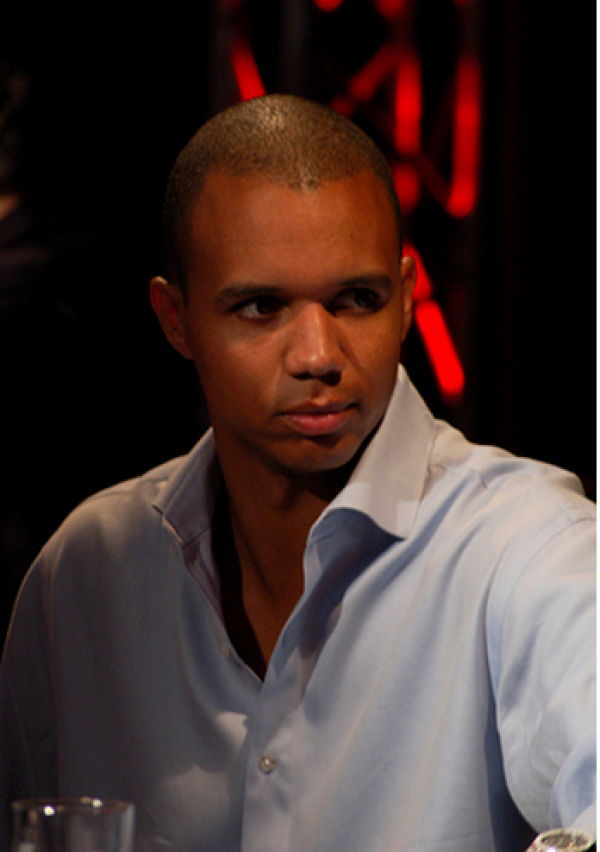Ivey’s big question: why is edge sorting cheating?

Phil Ivey’s recent failure to win the right of appeal in his court case against a London casino raises some profound questions for card players. The ten time WSOP winner lost a $12.4 million court case in London, England in 2012 after the casino refused to pay out on his baccarat win there, insisting that because he had ‘edge-sorted’ he had in effect cheated them.
Ivey, who maintains that edge sorting is a legitimate and legal part of the game (it involves identifying printing irregularities on the back of cards) sought to claim what he saw as money he had rightfully won. As it turned out, the British High Court did not share that view and sided with Genting Casinos UK, owners of the Crockfords Casino where the game took place.
But now, denied any right to appeal the question at the heart of the dispute, Ivey is marooned in a legal no-man’s land. And for many who share his view, one key question remains unresolved: Exactly why is edge sorting cheating?
Clearly, this is not an issue that affects the fast growing online industry. In a turnaround from much of the prejudice that surrounds what happens online, grinders who play online at 32Red.com, PokerStars or any of the other virtual casinos that are enjoying a dramatic surge in popular interest currently, their games can be guaranteed to be free of this particular concern. This is fundamentally a question for the bricks and mortar bedrock of the industry, and within that, it is one that inevitably focusses on the high end of the scale.
As such, the level of publicity surrounding the whole debate is out of proportion to the number of people who it affects directly. But that does not mean that what is effectively an ethical question that should be ignored. Establishing the line between what is and what is not legitimate in a game goes right to the heart of the game itself.
Ivey’s defence is that being able to read the cards as three dimensional objects is a legitimate part of the game. In effect he sees no distinction between what is shown on the face of the card and how it is presented face down. On the face of it (sic) this seems like a perfectly reasonable position and it is hard to see what the legal objection to it should be.
Even so, in his summing up of the appeal Judge John Mitting was widely reported as saying, “He gave himself an advantage which the game precludes. This is in my view cheating.” It seems that, legally speaking, the advantage that Ivey sought to gain was not so much his ability to see the detail of the cards’ faulty manufacture (a fact duly admitted in court), it was in asking the croupier to deal them in a way that allowed him and his associate Cheng Yin Sun to see them better. As such Judge Mitting declared that Ivey cheated “by using the croupier as his innocent agent or tool”. Given that the judge also recognised that Ivey, whom he went out of his way to describe as an “honest witness”, did not believe himself to be cheating this seems a somewhat one-eyed view.
Two questions immediately arise: first, how can you cheat if you are not trying to - surely that is no worse than a misunderstanding? The second point concerns Ivey’s admission of his association with Cheng Yin Sun. Given the legalistic nature of the story so far, it would be strange indeed if that were not to be opened up to further scrutiny. We will not speculate further, but given the multi-million dollar nature of these cases - and another case brought by Cheng Yin Sun against Foxwoods Casino in Connecticut, the issue looks set for further forensic legal examination. We may yet get an answer to the big question as part of that.
But irrespective of how those arguments pan out the damage is already considerable for Ivey. Denied any right of appeal he is left with a tarnished reputation and a potentially ruinous follow up.
Not only is he taking the immediate hit of several millions of in terms of his ‘winnings’ and his court costs. The case has prompted a further complaint against him from Atlantic City’s Borgata Casino who are claiming redress for $9.6 million that he won at their tables in 2012, they claim, as a result of edge sorting.
However that case unfolds, as Ivey himself told CBS’s 60 minutes Sport in an unprecedented interview, the real damage is to his reputation:
“Once you get cheater next to your name - especially in my business, which is the business of gambling, it’s really bad,” he said.
Ivey, damaged as he has been by recent events, is keener than most to resolve the bigger question that remains: why exactly is edge sorting cheating?








